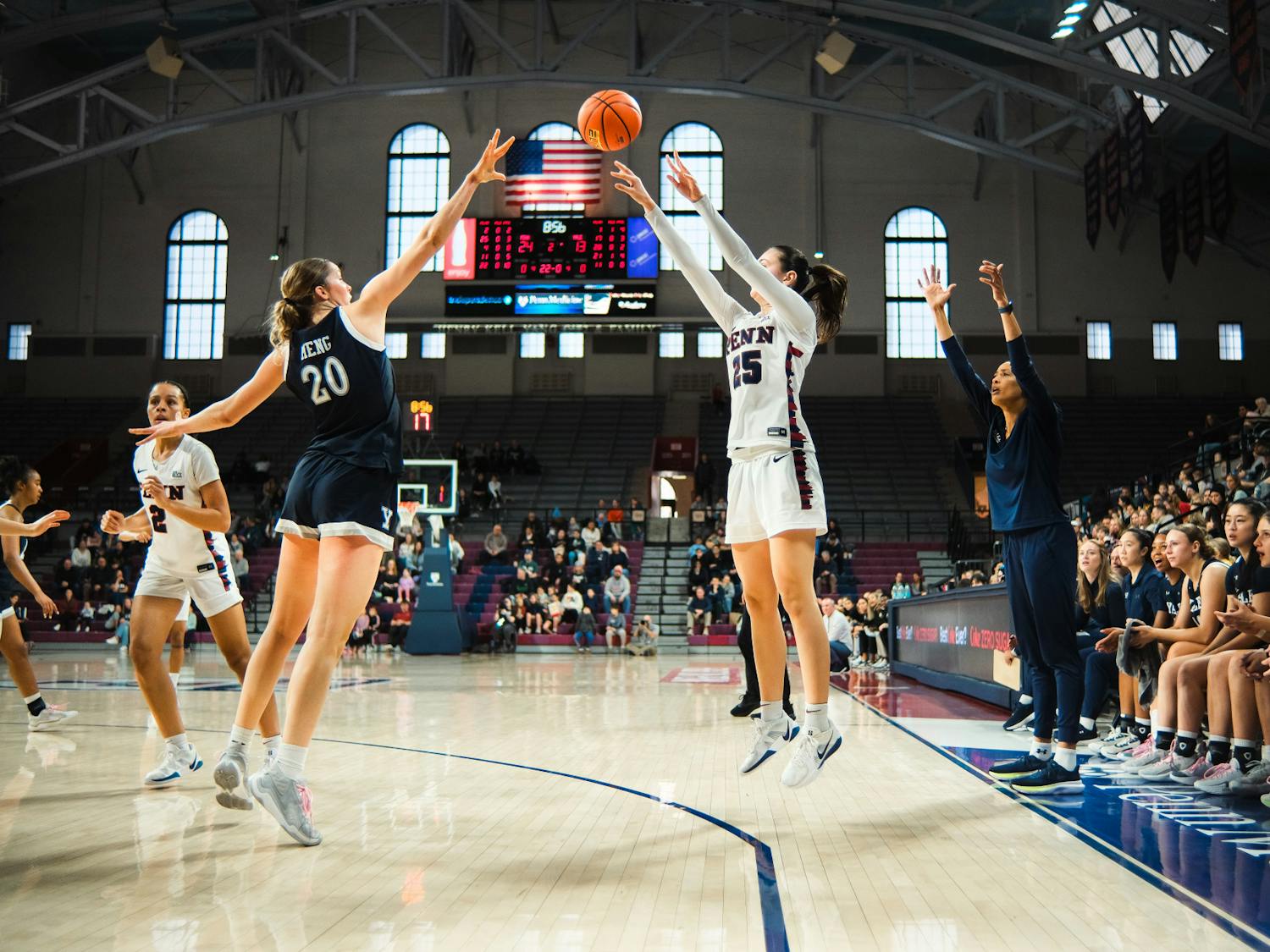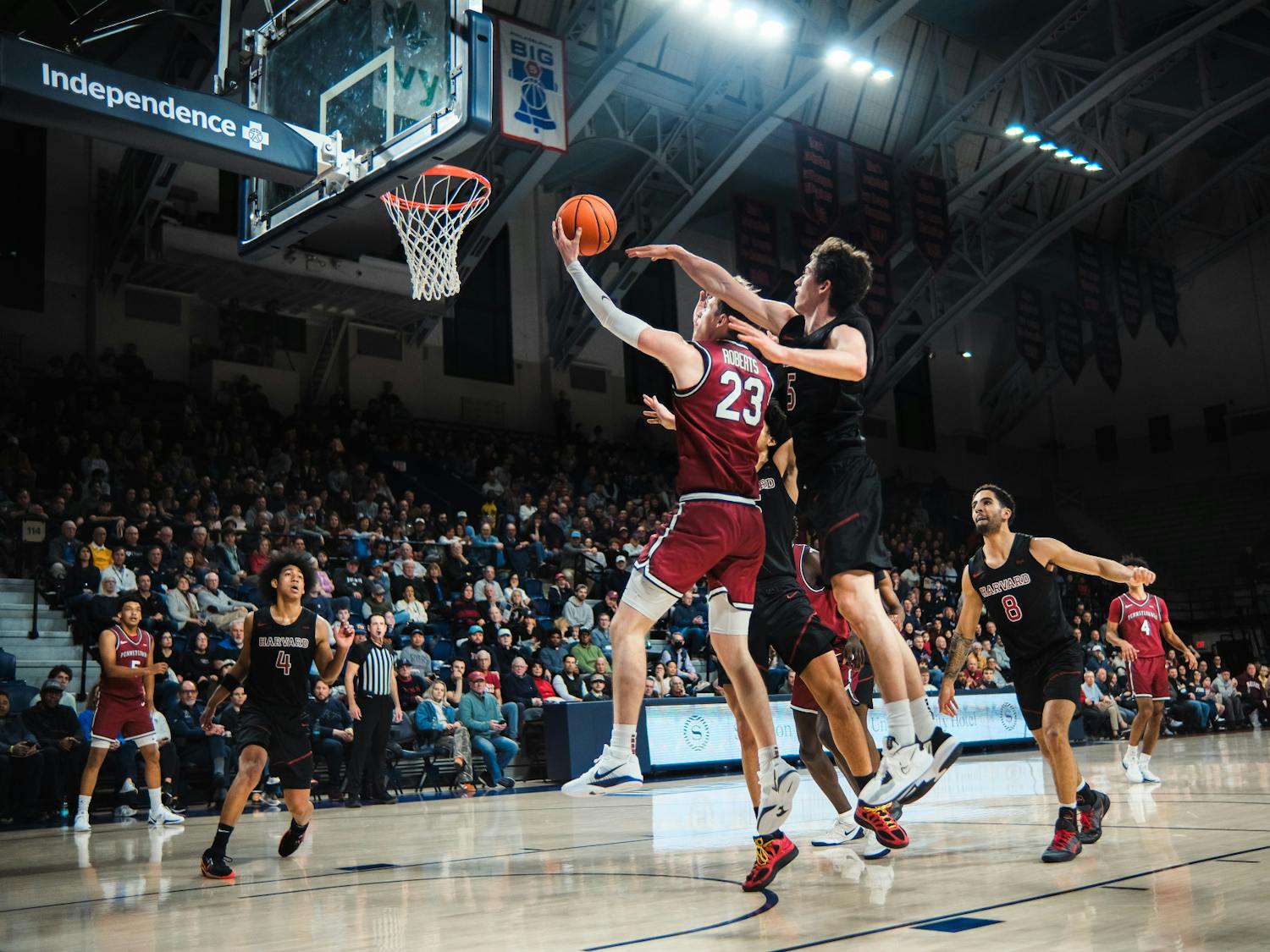This year saw Penn lose two institutions from its athletic program.
After 22 years as head heavyweight rowing coach and over 110 career victories, Stan Bergman will end his Penn coaching career this June.
Meanwhile, gymnastics coach Tom Kovic called it quits after this, his 19th season.
During his tenure, Bergman led the heavyweight crew team to a number of league championships, making the Bergman era the latest success in the longstanding tradition of Penn rowing.
The Quakers won two IRA Championship titles and four Eastern Sprints Championships under the Penn coach's leadership. In 1990, the team finished the cup race season undefeated at 8-0. In addition, Bergman has coached five rowers who have competed in the Olympics.
Bergman was voted Eastern Association of Rowing Colleges Coach of the Year four times, and has always been well respected by his fellow coaches.
"Coaches like Stan are few and far between," Princeton men's heavyweight rowing coach Curtis Jordan said. "He's an extreme competitor, but he has the ability at the same time to be a complete sportsman and gentleman."
Throughout his final season, Bergman's peers honored the coach for his formidable career.
For example, after the Burk Cup on May 6, Northeastern coach John Pojednic paid tribute to Bergman, commenting that any coach can win with the best athletes, but that Bergman can win even without the best talent.
Captain Nate Allen explained Pojednic's remarks.
"Coach Pojednic's statement is significant on two levels: It summarizes how incredible Stan Bergman is at forming and training a crew, and reflects the kind of respect that coach Bergman receives from his competitors," Allen said.
Similarly, after the Adams Cup on April 22, both Navy coach Rick Clothier and Harvard coach Harry Parker paid a tribute to Bergman in which all three crews gave him a standing ovation.
Although Bergman has an impressive career with many victories, his strengths as a coach extended beyond just winning. According to his rowers, Bergman has goals other than just winning.
"It's hard to find men in athletics that have the intense competitive fire of coach Bergman while still maintaining high values of respect and honor," Allen said. "Every interaction with him is a teaching moment, and he is an inspiration to our team on a daily basis."
Bergman will not sever all ties with Penn rowing, since he will return to the rowing program in July as the Director of Rowing Affairs.
But his presence will be missed among the coaching ranks.
"To have someone of Stan's caliber leave, it's going to hurt the quality of the coaching cadre in the Eastern League, and we'll miss him," Jordan said.
Penn's gymnastics program will be undergoing a similar transformation in the coming months and years; head coach Kovic is slated to leave campus for good midway through the summer.
Kovic departs after an impressive career in gymnastics, all the more impressive because it took place almost entirely within the confines of the city of Philadelphia.
The 1977 Temple graduate took the reigns of the Penn program in 1987 after coaching the local Germantown Friends High School for eight years, three of which he also spent employed as an assistant for the Quakers.
Kovic won four varsity letters with the Owls -- earning a spot as an NCAA finalist in 1976 -- and competed for the United States on the international stage for a short time before he began his coaching career.
And with that shift came an unprecedented era of success for the Quakers program.
Despite the fact that not all Ivy League teams compete, Penn had only once finished as high as second in the Ivy Classic prior to Kovic's tenure. The program at times appeared to be on the ropes, changing coaches three times in three years from 1976-78.
But all that quickly changed when the Quakers captured their first title just four years into the Kovic era -- the first time all competing gymnasts had been recruited by him.
Athletes who spent their collegiate careers in the program spoke of it as one in which academic and athletic excellence were both expected.
Gymnasts "at Alabama of Georgia -- that's all they do," Becca Aronson, who competed on the Quakers for the past four years, said when she heard of Kovic's resignation.
But, she added, "just because we're Ivy League doesn't mean we're not Division I.
"Coach Kovic always instilled that confidence in us."
That first Ivy Classic title in 1991 would be followed by six more, including four in a row from 1997-2000. That was more than all the other Ivy League teams combined over that period.
Penn also captured two Eastern Collegiate Athletic Conference championships during that time. No other Ivy League program has even one ECAC title to its name.
But for those around the program, the focus has always been on a culture of excellence in and out of the gym.
Penn produced 160 Scholastic All-Americans during Kovic's tenure, an average of more than eight per year.
Most recently, his 2005 squad boasted the fifth-best cumulative grade point average among all Division I programs.
That commitment is reflected in the coach's future plans. Kovic will soon begin a small consulting service that aims to educate prospective student-athletes and their parents about the recruiting process.
And, Kovic says, the last 19 years have seen an important change in the culture of collegiate athletics as a whole.
"Parents are beginning to buy into the importance of the 'student' in 'student-athlete' more so now than perhaps 25 years ago," he said.
And, as he concedes, this shift may lay the groundwork for even higher levels of success in years to come.
Staff writer Mike Gulinello contributed to this report








